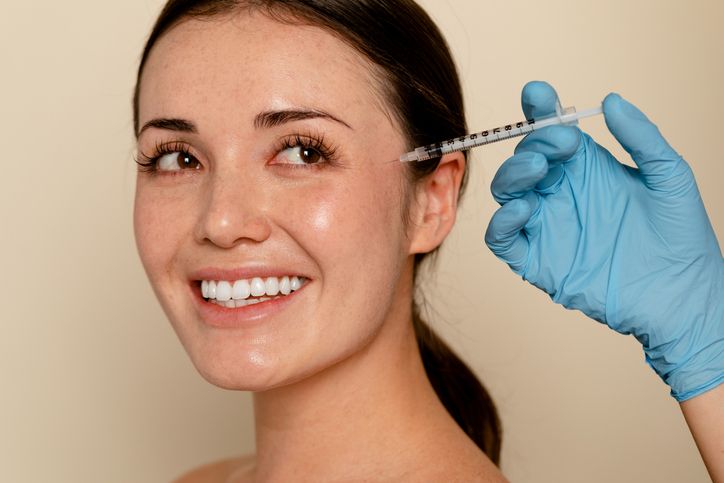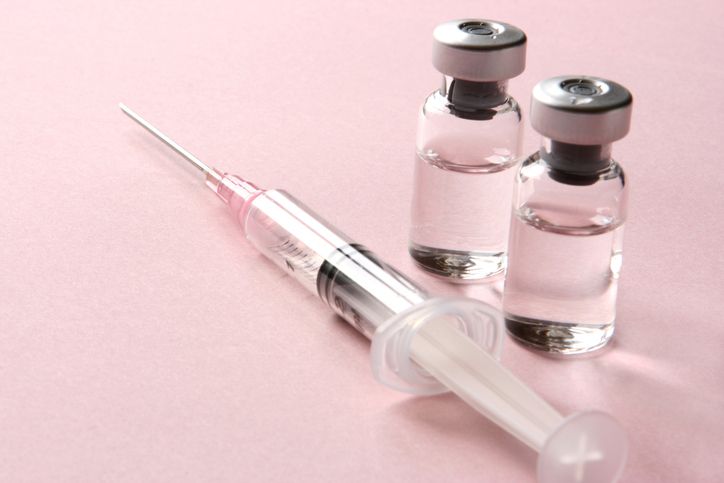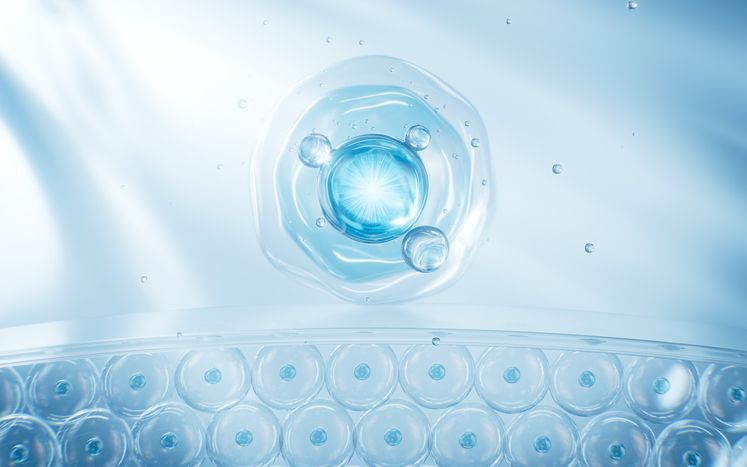
- Home
- Trend
- Weight Loss Strategies
- Acne Tips
- Hair Health Information
- Blemish Removal Tips
- Acne Scar Removal Tips
- Muscle Building Techniques
- Intimate Care Tips
- Postpartum Intimate Care
- Eye Bags Wiki
- Tips for Face Slimming
- Secret of Permanent Hair Removal
- Breast Enlargement Tips
- Cure to Snoring
- Marionette Lines
- Skin-Tightening Secrets
Scalp acne can be extremely frustrating—it often recurs in hot and humid weather and leaves acne scars on the scalp, nape of the neck, and the hairline. What exactly causes scalp acne, and can it lead to hair loss in severe cases? How do dermatologists treat it? What ingredients should you look for in shampoos to prevent it? This article has all the answers, so you can finally say goodbye to scalp acne!
Is This Really Scalp Acne?
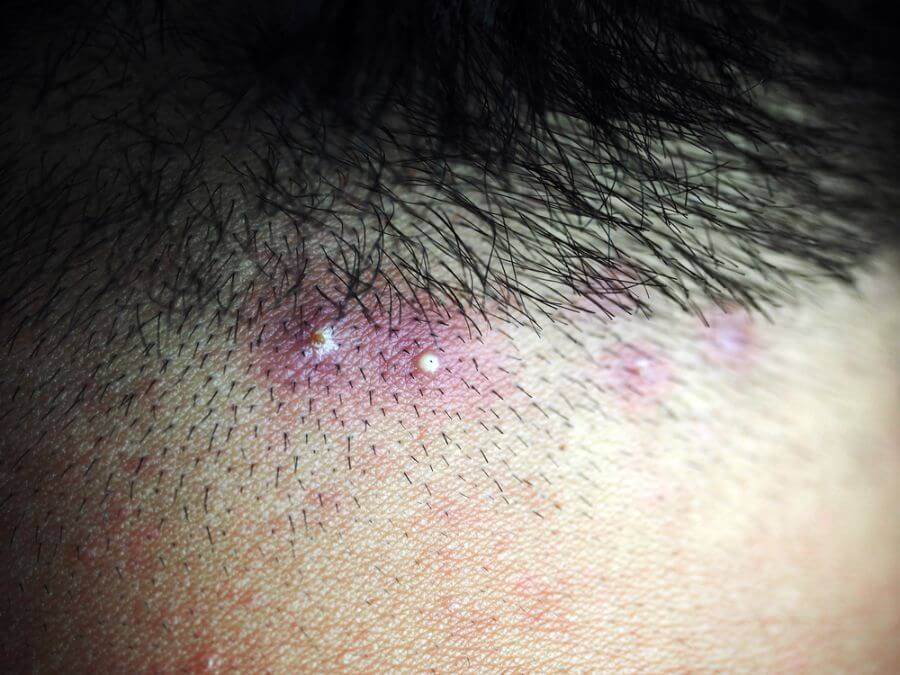
Scalp acne generally falls into two categories. Grab a mirror and take a closer look at your scalp.
One type appears as one or two occasional pimples on the scalp, often near areas with minor damage—such as scratches from fingernails or brushes—or near the hairline at the nape. These are usually larger, itchy, and painful, and may or may not be filled with pus. They tend to heal on their own without treatment, even if the pus is squeezed out. Dermatologists consider this type to be a form of acne caused by occasional follicle blockage or by a hot and humid scalp environment that encourages bacterial overgrowth and inflammation. These don’t usually require treatment.
The second type consists of small, clustered pimples that are red and possibly pus-filled. Though they may not be painful, they tend to recur. Without anti-inflammatory shampoos or topical ointments, they are unlikely to heal on their own.
Symptoms of Scalp Acne
Scalp acne can cause itching, mild pain, and redness. Mild cases appear as raised papules or pustules, with or without pus, and may heal naturally. More serious cases may develop nodules or cysts that damage the dermis and leave scars—preventing hair regrowth. Scalp acne may also manifest as bacterial or fungal folliculitis, where small red or pus-filled pimples spread across the scalp. These cases require medication to resolve.
What Causes Scalp Acne?
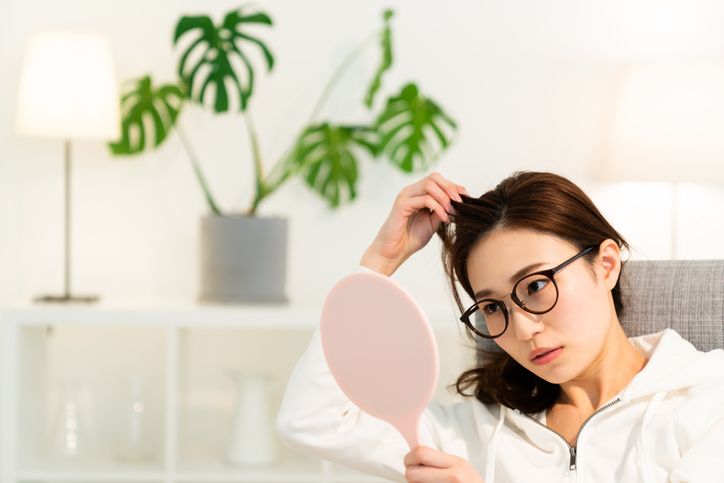
1. Excessive Oil Production
People with oily or sensitive skin are more prone to scalp acne. The scalp is an extension of your facial skin, so if you have acne-prone facial skin, your scalp is likely similar. Without proper cleansing or exfoliation, dead skin can clog pores, mix with acne bacteria, and cause inflammation, redness, and pain. Oily scalps are also linked to seborrheic alopecia.
2. Sensitive or Dry Scalp
Scalp acne isn’t limited to oily skin types. People with dry, thin, or damaged scalps are also vulnerable. Acne may occur when the skin’s oil barrier is compromised, leading to excessive dryness and triggering immune responses and inflammation. Scratches from nails or brushes can also introduce bacteria. Over-cleansing and using unsuitable shampoos can further damage the scalp’s barrier.
3. Chemical Irritants
Hair dye, bleach, perm solutions, styling sprays, wax, and even temporary color sprays can irritate the scalp, especially if it’s already acne-prone or injured. Avoid hair styling products if you're prone to scalp issues and maintain a clean, dry scalp environment.
4. Allergic or Inflammatory Reactions—Bacterial or Fungal
If your scalp acne keeps recurring, you may have folliculitis. Bacterial folliculitis often occurs when the scalp is injured and worsens with poor hygiene or picking at the acne. If it spreads, it may lead to cellulitis. Fungal folliculitis, which is contagious, can spread through shared items like towels, combs, or hats. If not treated properly, the infection can worsen and potentially lead to permanent hair loss.
免費體驗
F8 Hair Regrowth Treatment
1 Minute Self-Registration
Date should not be before minimal date
Is Scalp Acne Contagious?
Most scalp acne isn’t contagious. However, fungal scalp acne can be, so it’s important to maintain good hygiene and avoid sharing personal items like combs, hats, or scarves.
Is Scalp Acne Just an Extension of Regular Acne?
Scalp acne and facial acne both reflect poor skin health and weakened immunity. Excess oil production increases the risk of both. However, scalp and neck acne can also stem from fungal infections. If your scalp acne is recurring, severe, or widespread, avoid using regular acne creams and see a doctor instead. Facial acne products can worsen scalp acne due to different skin environments.
Who Is Most Prone to Scalp Acne?
People with oily skin, athletes, those working outdoors or in hot environments, and service workers who wear hats or helmets are more susceptible. They should wash their hair more frequently to keep the scalp ventilated.
免費體驗
F8 Hair Regrowth Treatment
1 Minute Self-Registration
Date should not be before minimal date
What Are the Consequences of Scalp Acne?
1. Dandruff Like Snowflakes
Scalp acne often signals a disrupted skin turnover cycle. When dead skin clogs pores, dandruff may increase. Dry scalp leads to white flakes, while oily scalp causes larger, yellowish flakes. Scabs from healing acne can worsen dandruff, so sudden dandruff spikes should not be ignored.
2. Large Cystic Pimples
Severe acne can affect deeper skin layers. Popping immature pimples can rupture the pus sac beneath the skin, leading to larger cysts or even more serious infections.
3. Hair Loss
Severe cystic acne can scar the dermis, preventing hair regrowth in affected areas. This results in round bald patches that resemble alopecia areata. An unhealthy scalp environment also weakens hair follicles, increasing the risk of chronic folliculitis and eventual hair loss if left untreated.
How to Treat Scalp Acne
1. Tar-Based Shampoo
Tar-based shampoos reduce excess oil and dandruff, which helps treat scalp acne at its source. However, they may overly dry out normal or dry scalps, worsening dandruff and itchiness. Use sparingly and avoid if you have sensitive or dry skin.
2. Anti-Inflammatory Shampoos
Choose shampoos with ingredients like selenium sulfide, zinc pyrithione, or essential oils such as peppermint, eucalyptus, tea tree, and lavender. These regulate oil production and fight fungi. Sensitive skin types should opt for formulas with simple ingredient lists.
3. Prescription Antibiotic Creams or Solutions
If medicated shampoos don’t help, see a doctor. They may prescribe antibiotic ointments or oral antibiotics. For fungal infections, antifungal creams will be prescribed.
4. Traditional Chinese Medicine (TCM): Herbal Remedies & Acupuncture
If your scalp feels balanced but acne still persists, TCM views scalp acne as related to "damp-heat" and poor internal circulation. Dietary triggers like greasy, spicy, or caffeinated foods contribute to excess heat. Chinese medicine uses herbs and acupuncture to restore internal balance and improve scalp health.
How to Prevent Scalp Acne: 7 Daily Habits
1. Thoroughly Clean Your Scalp
Too much oil and thick keratin buildup can block pores. Wash hair more frequently in summer with oil-control shampoos. In winter, use more hydrating formulas to avoid triggering acne from dryness.
2. Avoid Conditioner Contact with the Scalp
Most conditioners are heavy and can clog pores. Apply only from mid-length to ends. For those with acne near the nape, avoid conditioners and use hair oils on the last 5cm of hair instead.
3. Clean Your Hairbrush Regularly
You use it every day—but do you wash it? Hairbrush bristles collect oil, dead skin, and product residue, which can transfer bacteria back to your scalp. Clean it weekly to prevent buildup.
免費體驗
F8 Hair Regrowth Treatment
1 Minute Self-Registration
Date should not be before minimal date
Say Goodbye to Scalp Acne! Try the Perfect Medical F8 Hair Regrowth Treatment
Scalp acne is a nightmare for many men and women. Every time you sweat heavily or enter the hot and humid summer season, scalp and neck acne reappear to frustrate you. Scalp acne not only causes dandruff that falls like snowflakes, but also brings itching, pain, and acne scars. If not properly treated, it may even lead to hair loss! So how can you effectively get rid of scalp acne? Prevention is better than cure!
The Perfect Medical F8 Hair Regrowth Treatment doesn’t just focus on promoting hair growth — it also helps treat and resolve issues like seborrheic dermatitis, scalp oil-water imbalance, recurring scalp sensitivity, and scalp acne. This non-invasive treatment leaves no wounds on the scalp. It uses 650nm LLLT low-level laser technology to penetrate deep into the scalp, boost blood circulation in scalp tissues, and promote capillary formation. This increased blood flow helps deliver nutrients to nourish and strengthen the scalp, keeping it healthy and hydrated.
Besides using low-level soft laser technology for hair growth, the F8 treatment also introduces powerful hair growth and scalp care factors. It deeply purifies scalp pores, removes dead skin cells and chemical residues, hydrates the scalp, and restores the oil-water balance. This helps return the scalp to a clean, fresh, and resilient state — preventing excessive oil secretion and the recurrence of scalp acne.
If you don’t want to deal with scalp acne every summer or worry about it every time you work out, take just one minute to register for a trial of the F8 Hair Regrowth Treatment — it's time to say goodbye to scalp acne for good!
Book it Today: Perfect Medical F8 Hair Regrowth Treatment免費體驗
F8 Hair Regrowth Treatment
1 Minute Self-Registration
Date should not be before minimal date
FAQ

Why do I get scalp acne?
There are four main causes of scalp acne: Excess oil secretion – When too much sebum is produced, the stratum corneum (outer skin layer) thickens and becomes sticky, clogging pores. The mix of oil and bacteria in the hair follicles then leads to scalp acne. Sensitive or overly dry scalp – A sensitive scalp, wounds on the scalp, or excessive dryness can weaken the natural protective barrier, making it easier for bacteria to invade and cause acne. Chemical irritation – Dyeing, bleaching, perming, or using styling sprays, gels, waxes, or temporary color sprays can irritate the scalp or clog pores, leading to acne. Scalp inflammation from bacterial or fungal infections – Scalp folliculitis caused by bacteria or fungi may require medical attention if it persists.
Is hair wax less likely to cause scalp acne compared to hair spray?
Yes. Spray-style hair products are harder to control in terms of amount and direction, which can lead to direct contact with the scalp — possibly irritating it or clogging pores. On the other hand, applying wax or pomade by hand gives better control, helping avoid direct scalp contact and minimizing the chance of acne.
What does traditional Chinese medicine say about the cause of scalp acne?
While Western medicine attributes scalp acne mainly to bacterial infections, traditional Chinese medicine (TCM) sees it as the result of poor lifestyle and dietary habits. Stress, insomnia, heavy-flavored foods, smoking, drinking, and frequent consumption of spicy or “heaty” foods can lead to spleen and stomach heat, causing increased sebum and odor. Those who lack sleep and physical activity often have yin-yang imbalances, where excess internal heat can lead to scalp acne.
What’s the most serious outcome of scalp acne?
A few pimples on the scalp usually heal on their own. However, if the condition is severe or recurring, it could indicate a fungal infection, weak immunity, or long-term improper scalp care. Persistent inflammation may damage hair follicles, causing them to shrink or die. In the worst case, deep acne can scar the dermis and prevent hair from regrowing in the affected area — or lead to hair loss due to follicle shrinkage.
What if I have acne on my scalp, face, and neck at the same time?
Although the scalp is an extension of facial skin, the presence of hair and higher surface temperature make it a different environment. So, having scalp acne doesn’t necessarily mean you’ll also have facial acne, and vice versa. However, neck acne is often associated with scalp acne. Some people apply neck acne treatments on their scalp, but dermatologists warn against using facial acne products on the scalp. Improper use of antibiotics or antimicrobial creams without understanding the cause may disrupt the scalp’s microbiome and worsen the condition. Simultaneous acne on the scalp, face, and neck may be due to seborrheic dermatitis, hormonal imbalances, fungal infections, or problems with immunity or circulation. If it's caused by body constitution, it’s best to seek medical advice early for appropriate treatment.






